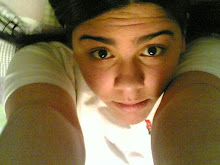"He could see no change, save that in the eyes there was a look of cunning, and in the mouth the curved wrinkle of the hypocrite... and the scarlet dew that spotted the hands seemed vrighter, and more like blood newly spilled" (227).
Dorian does not think very much about his actions. Letting go of Hetty was vain of him. Keeping her to love him would have been good, because, as Sibyl said, "'to be in love is to surpass one's self'" (71). Dorian probably wanted to do a good deed, not save someone. Like what we talked about in theology when you pat yourself on the back for a good deed, it fuels pride. For Dorian, that is a hard thing not to to, because he is so accustomed to feeling that pride for everything he does. For the fresh blood, it is because of, "'Alan Campbell's suicide'" (217). Whatever caused Alan to shoot himself over was because of the blackmail Dorian held over him and the disposing of Basil's body. He probably felt terrible, and that was all, indirectly or not, because of Dorian, which means he is responsible now for at least three deaths. It is possible Hetty killed herself, because "'she was quite beautiful, and wonderfully like Sibyl Vane'" (215). If she did happen to kill herself, then that would bring the death count to four. I think this might have happened, because Henry goes on a long tangent about her future, which would distract Dorian from wondering about any alternative end. If he thought Hetty had killed herself, Dorian would be so depressed. He is trying to change, but it is all happening very slowly and very erroneously: "Through vanity he had spared her. In hypocrisy he had worn the mask of goodness. For curiosity's sake he had tried the denial of self. He recognized that now" (228). If it had taken Dorian that long to see all of that, it means he was truly trying to change into a better person.
"Did it mean that he was to confess? To give himself up, and be put to death?... He felt that idea was monstrous. Besides, even if he did confess, who would believe him?... Yet it was his duty to confess. There was a God who called upon men to tell their sins to earth as well as heaven. Nothing that he could do would cleanse him till he had told his own sin... Was he always to be burdened by his past? Was he really to confess? Never" (228).
Like when he was harshly rejecting Sibyl, Dorian seems to be putting everything together and slowly coming to an answer. He toys with the idea of a confession, but comes to the logical conclusion that no one would believe him. And no one would. Only Basil and Henry can believe him, because only those two saw the picture before it changed. Anyone else would think Dorian as being insane: "The world would simply say that he was mad. They would shut him up if her persisted in his story" (228). The only problem is that if Henry were to confirm his story, he would be put in jail. He consoles himself with ignoring that and thinking that he would be put into an asylum and no good would come out of it. He is left to figure out what both The Crucible and The Scarlet Letter were trying to figure out: is it better to publicly or privately bear sins? He leans towards publicly then snaps back like an elastic to privately, which would save himself. He decides to free himself and start over, which is a nice theory but would be impossible to practice, because the painting, "had been like a conscience to him. Yes, it had been a conscience. He would destroy it" (228). To get rid of the conscience gets rid of the shame, and that would end any hopes of changing for Dorian. He was so Hellenistic that he thought that destroying the painting that upheld his beauty would save him: "As it had killed the painter, so it would kill the painter's work, and all that that meant. It would kill the past, and when that was dead he would be free. It would kill the monstrous soul-life, and without its hideous warnings he would be at peace" (228-229). Dorian only comforted himself with the thoughts of being good, without any real intention of becoming so.
Sunday, March 28, 2010
Subscribe to:
Post Comments (Atom)

No comments:
Post a Comment